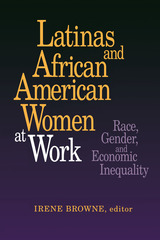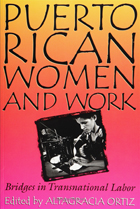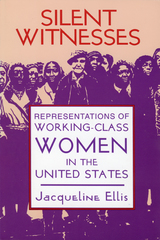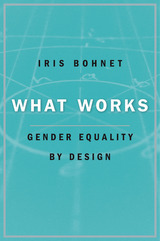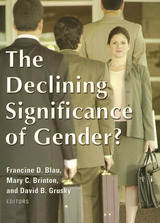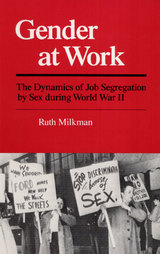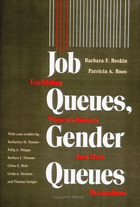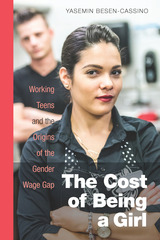Gendered Tradeoffs: Women, Family, and Workplace Inequality in Twenty-One Countries
Russell Sage Foundation, 2009
eISBN: 978-1-61044-678-5 | Cloth: 978-0-87154-661-6 | Paper: 978-0-87154-695-1
Library of Congress Classification HD6060.P48 2009
Dewey Decimal Classification 306.3615
eISBN: 978-1-61044-678-5 | Cloth: 978-0-87154-661-6 | Paper: 978-0-87154-695-1
Library of Congress Classification HD6060.P48 2009
Dewey Decimal Classification 306.3615
ABOUT THIS BOOK | AUTHOR BIOGRAPHY | TOC
ABOUT THIS BOOK
Gender inequality in the workplace persists, even in nations with some of the most progressive laws and generous family support policies. Yet the dimensions on which inequality is measured—levels of women's employment, number of hours worked, sex segregation by occupations and wages—tell very different stories across industrialized nations. By examining federally guaranteed parental leave, publicly provided child care, and part-time work, and looking across multiple dimensions of inequality, Becky Pettit and Jennifer Hook document the links between specific policies and aggregate outcomes. They disentangle the complex factors, from institutional policies to personal choices, that influence economic inequality. Gendered Tradeoffsdraws on data from twenty-one industrialized nations to compare women's and men's economic outcomes across nations, and over time, in search of a deeper understanding of the underpinnings of gender inequality in different labor markets. Pettit and Hook develop the idea that there are tradeoffs between different aspects of gender inequality in the economy and explain how those tradeoffs are shaped by individuals, markets, and states. They argue that each policy or condition should be considered along two axes—whether it promotes women's inclusion in or exclusion from the labor market and whether it promotes gender equality or inequality among women in the labor market. Some policies advance one objective while undercutting the other. The volume begins by reflecting on gender inequality in labor markets measured by different indicators. It goes on to develop the idea that there may be tradeoffs inherent among different aspects of inequality and in different policy solutions. These ideas are explored in four empirical chapters on employment, work hours, occupational sex segregation, and the gender wage gap. The penultimate chapter examines whether a similar framework is relevant for understanding inequality among women in the United States and Germany. The book concludes with a thorough discussion of the policies and conditions that underpin gender inequality in the workplace. The central thesis of Gendered Tradeoffs is that gender inequality in the workplace is generated and reinforced by national policies and conditions. The contours of inequality across and within countries are shaped by specific aspects of social policy that either relieve or concentrate the demands of care giving within households—usually in the hands of women—and at the same time shape workplace expectations. Pettit and Hook make a strong case that equality for women in the workplace depends not on whether women are included in the labor market but on how they are included.
See other books on: Families | Labor | Pettit, Becky | Sex discrimination in employment | Sex role
See other titles from Russell Sage Foundation





